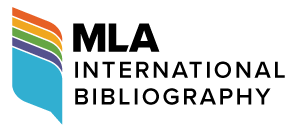Abstract
Lexical borrowings refer to the borrowing of words from one language to another to fill in certain words that do not have a direct translation to the local language. The study is anchored in the Phylogenetic Change Theory made by Hockett (2008) and the Deficit Hypothesis authored by Kachru (1994). The present study explores the words lexically loaned from the English language in the Chabacano language. Raw data were taken, for analysis from Dateline Zamboanga, a local teleradyo program airing regularly on both television and radio broadcasts. The borrowed English words were then tallied and sorted based on lexical categories, patterns, affixation, and semantic fields. In the investigation, frequency count was utilized to determine the number of iterations and percentage composition of the borrowed words. After investigating, the results are as follows: (1) nouns were the most borrowed part of speech, concretized by the 74.585% of lexically borrowed words being nouns; (2) phrase-borrowing is more prevalent than sentence level borrowing evidenced by 90.615% of lexical borrowings occurring in the phrase-level; (3) borrowed words were originally English nouns but were transformed into verbs by means of Chabacano prefixation. Notably, the absence of suffixation gives prefixation total prevalence, and; (4) the semantic field where these borrowed words were found to be frequently utilized was in reference to government agencies or offices comprising of 25.476%. The results give the impression that the interlocutors in Dateline Zamboanga incorporate English utterances into the Chabacano language thus, modifying the former to suit their communicative purposes.
Recommended Citation
Soliman, Luis Roberto P. and Lee, Armand H.
(2023)
"English Lexical Borrowings in Chabacano Television Newscasts: Categories, Patterns, Affixations, and Semantic Fields,"
Journal of English and Applied Linguistics: Vol. 2:
Iss.
1, Article 5.
DOI: https://doi.org/10.59588/2961-3094.1050
Available at:
https://animorepository.dlsu.edu.ph/jeal/vol2/iss1/5





